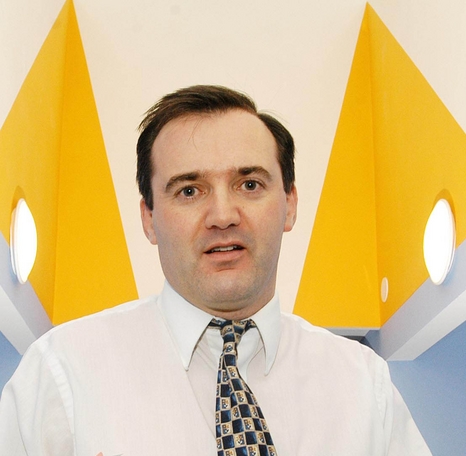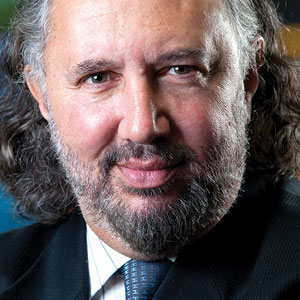
The Prime Minister’s flagship scheme to extend GP access appears to be rapidly running out of steam.
A Pulse investigation has revealed that, of the 18 pilots that were given funding in April 2014 to offer seven-day access, eight in total have now either cut weekend or evening hours, or stopped providing the service altogether.
The initial funding, worth £50m, runs out this month and NHS England and the CCGs involved in the pilots are remaining tight-lipped about whether the schemes will continue.
But, ahead of the publication of a national evaluation of the schemes this autumn, Pulse has learned seven-day access schemes in north-west London, Devon, Slough and Derbyshire have reduced their hours from their original plans.
This is in addition to four other schemes that reported doing so earlier in the year, meaning almost half of all pilots have scaled back their ambitions before the pilots end.
However, despite dwindling enthusiasm for the ‘Challenge Fund’ pilots, health secretary Jeremy Hunt has told MPs that it will become a requirement for GPs to ensure patients are able to book appointments from 8am to 8pm, seven days a week – even if they do not provide the services themselves.
Speaking at a hearing of the House of Commons health committee last month, health secretary Jeremy Hunt explained how he would increase the pressure on practices to ensure seven-day access.
Mr Hunt said: ‘Every practice needs to offer its patients the opportunity to have routine appointments 8am-8pm in the week and over the weekend.’
He added: ‘That might be at a neighbouring practice, it may be via Skype, or it might be through some federated arrangement.’
This was the first time the health secretary had transferred the onus for ensuring local provision of seven-day services onto GP practices, it having previously been the responsibility of CCGs.
And it forms an interesting backdrop to ongoing contract negotiations with the GPC, which has ruled out any contractual change to implement seven-day working.
Dr Richard Vautrey, GPC deputy chair, says: ‘Every patient in the country can get access 24/7 to an urgent care GP service.
‘And that is what we need to build on – for the resources the Government already has to be invested in out-of-hours co-operatives, which use local GPs providing services to local patients. We do not need to create more duplication and confusion for patients.’
Dr Vautrey adds that it is ‘financially sensible’ for CCGs to be cutting hours.
‘It’s obvious the CCGs are going to make that decision when the services are either poorly used or not financially viable. The only surprising thing is that the Government is continuing with this agenda and throwing good money after bad.’
‘It has made little difference to patients’

Dr John Ashcroft
I do not see a great deal of benefit in the Challenge Fund scheme. It may tick the seven-day access box for managers and the Department of Health, but has made little difference to patients – except confusing them with initiatives that are not joined up.
The seven-day hubs in our area have, to an extent, plugged a gap left by funding cuts for the extended hours DES, the closure of our walk-in centre and a reduction in out-of-hours GP services.
But the pilot in Derbyshire has dramatically reduced its opening hours.
There are still two seven-day hubs and they have cut hours from four hours to two hours on weekdays, and 12 hours a day to just three hours at weekends.
Our practice has repeatedly offered to open later via the extended access DES, but keeps getting refused due to lack of funding. Ministers want more GP availability, but if the DH doesn’t fund it, it’s not going to happen.
Dr John Ashcroft is executive officer at Derbyshire LMC
Funding fudge
Most of the first wave of Challenge Fund pilots began weekend and evening opening between September 2014 and November 2014, and were originally due to be given a year’s funding from NHS England, after which CCGs would have to stump up the cash to continue them.
But, with most of the original pilots now approaching the end of their first year of operation, NHS England has refused to state whether or not CCGs have found funding to continue the schemes.
A spokesperson claimed they are waiting for the publication of an evaluation of the first wave of pilots, which is due later this year.
Despite this, Pulse has discovered that CCGs have already made decisions, in some cases even before the pilots had been running a year.
Local leaders in some areas claim that there is little appetite for seven-day services among patients.
In north-west London, weekend access across five CCGs – NHS Brent CCG, NHS Ealing CCG, NHS Harrow CCG, NHS Hillingdon CCG, NHS Hounslow CCG, NHS West London CCG and NHS Hammersmith and Fulham CCG – has been cut, according to Londonwide LMCs. It said: ‘The CCGs have found that weekend opening is not as popular as first thought, so weekend hours covered have been modified.
‘The CCGs are continuing extended hours using local schemes based on the formation of hubs.’
The CCGs themselves emphasise they are continuing to offer extended access, albeit on a smaller scale than before.
A spokesperson from North West London Collaboration of CCGs says: ‘Our Challenge Fund pilot has focused on supporting practices to work together as federations. This is scaling up benefits for patients. For example, our latest monthly progress report for the national evaluation shows that – supported by the Challenge Fund – an additional 201 practices are working together as federations to offer some form of weekend access (on Saturday, or on both Saturday and Sunday).’
Q&A – Will my practice have to provide seven-day access?
What is the Government’s seven-day access policy?
The Conservative party election manifesto pledged to ensure that everyone can see a GP and receive the hospital care they need seven days a week by 2020.
Will this mean my practice?
The Government has said that not every practice would have to open seven days.
However, health secretary Jeremy Hunt has now hinted that it will fall on all GP practices to ensure their patients can book a routine GP appointment from 8am to 8pm, seven days a week, by 2020 – even if they do not provide it themselves.
Mr Hunt said the appointments ‘might be at a neighbouring practice, via Skype, or through some federated arrangement’.
How will it be funded?
The Prime Minister’s Challenge Fund has been pump-priming pilots for
12 months, with at least £150m offered to schemes in the first two years. However, after this funding runs out, CCGs have to make the decision on whether to continue them. Many are taking the decision to downsize them already and so extending the pilots to the rest of the country is likely to require additional resources. CCGs say they are waiting for the publication of NHS England’s national evaluation of the scheme later this year before deciding whether to renew their schemes.
Pulse understands the future of the scheme hinges on the Treasury’s Comprehensive Spending Review, due to report later in the autumn.
When will it be rolled out?
The pledge is for it to be rolled out in full by 2020, but this will depend on whether CCGs are able to fund the services.
Will it be in the next GP contract?
That is the million-dollar question. The health secretary’s answer suggests that it could be and Pulse understands that officials may be looking at some sort of DES.
However, the GPC says it is dead-set against seven-day access being included in the national GP contract, as it would prefer the priority to be diverting funding to core services instead. However, GPC chair Dr Chaand Nagpaul has told Pulse that he may support local and voluntary arrangements to extend access where needed.
Confusing patients
In Derbyshire, practices have cut opening hours.
The CCG says funding for the reduced service will continue until March, after which seven-day access will be provided through its ‘vanguard’ GP partnership, also funded by NHS England, which will see it providing secondary care services.
Dr John Ashcroft, executive officer at Derbyshire LMC, says the pilot has done little more than confuse patients and take money away from existing services, such as the extended hours DES and out-of-hours services (see box, page 30).
Meanwhile, NHS Slough CCG confirmed that its Challenge Fund pilot has reduced weekend access to four hours on Saturday and Sunday, having originally offered 9am to 5pm on both days.
The CCG said it would wait until the national evaluation was published before commenting further.
In Devon, the Devon Doctors Group running part of the pilot in south-west England told Pulse that its four 9am to 5pm Saturday and Sunday appointment sites were ‘no longer in operation’.
This all comes on top of the five pilot schemes that Pulse revealed earlier this year had already cut back on their hours, including the south-west pilot in Devon, Cornwall and Isles of Scilly, where NHS Kernow CCG had already scrapped all its Sunday access.
Schemes in Hertfordshire, Darlington and Hereford have also had to reduce extended access.
At NHS Hambleton, Richmondshire and Whitby CCG, leaders pulled the plug on a pilot just four months into full operation, after just one in 10 appointments was filled despite ‘considerable promotion’ of the scheme.
Meanwhile, managers have said they will not give any further information on the pilots until the publication of the national evaluation of the programme later in the year.
An NHS England spokesperson said: ‘As discussed previously, a national evaluation of the programme will be published (timing yet to be confirmed) with more information on each of the pilots.’
NHS England has announced that nine of the 37 second-wave schemes have begun, and revealed they are using ‘a series of products and case studies’ from the first wave to roll out the scheme.
GPs paid £90 an hour for evening and weekend access

Dr Ivan Benett
A flagship seven-day access scheme has revealed that it is paying newly qualified GPs £90 per hour to staff shifts in evenings and weekends.
Manchester seven-day pioneer Dr Ivan Benett revealed that his CCG pays the rate to staff the evening and weekend shifts, which are now being rolled out across the whole of Greater Manchester.
An evaluation of the scheme – the inspiration for Prime Minister David Cameron’s seven-day access pledge – found that it reduced A&E attendances by 3% earlier this year, while the CCG has said it will increase funding.
Dr Benett, clinical director at NHS Central Manchester CCG and a GP in the city, said at the Westminster Health Forum in London last month: ‘We pay about £180 per session, for two hours.’
He added that the CCG found it ‘easier to recruit GPs coming out of training’ because it has ‘relatively, more training practices than other parts of the country’.
But Dr Peter Graves, chief executive of Bedfordshire and Hertfordshire LMC, who also spoke at the forum in London, commented that ‘£90 per hour is somewhat higher’ than the average GP rate, and said his calculations equated it to ‘an annual salary of £176,000’.
‘So the medical cost of this is £1,080 per day per doctor alone without the nursing and management back-up, etc. This is a very expensive service compared to… the average full-time GP,’ Dr Graves said.
But Dr Benett told Pulse: ‘The payments are for covering extended evening and weekend hours, not for normal in-hours practice and so it doesn’t really relate to those sorts of sums.
‘It is reasonable to pay extra for working unsocial hours. Actually, many partners receive that sort of profit share anyway.’
Pulse July survey
Take our July 2025 survey to potentially win £1.000 worth of tokens











